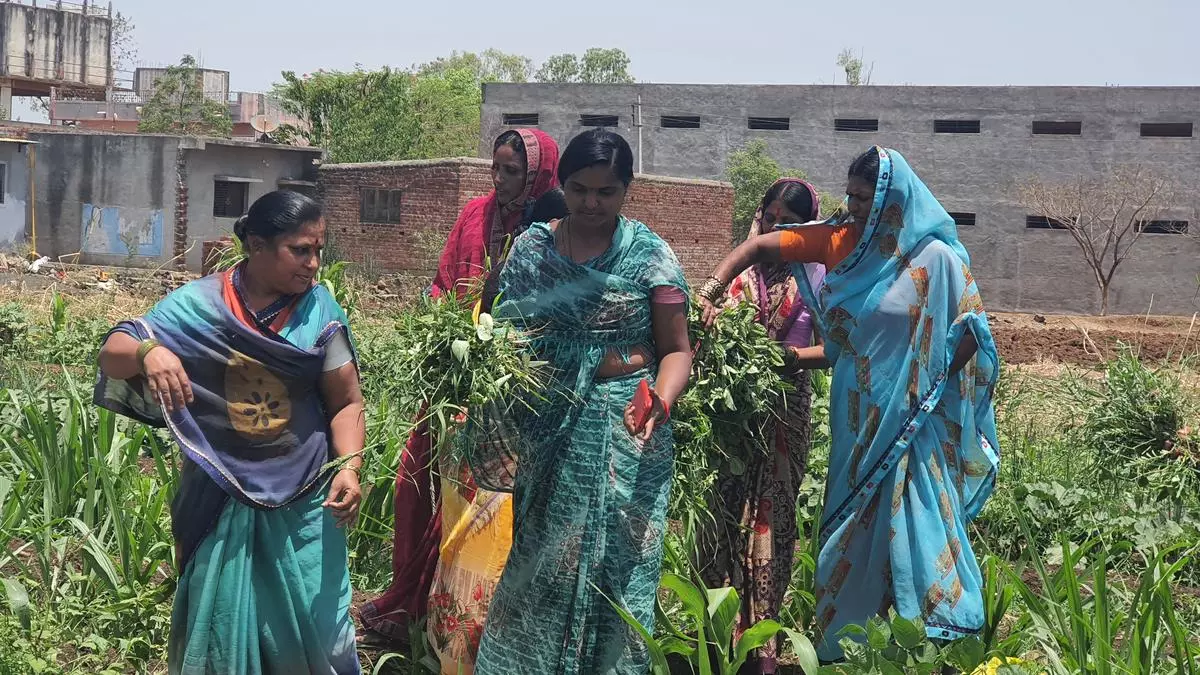Maharashtra Elections 2024: From ‘Ladki Bahin’ to entrepreneurs, these women aspire for financial independence
In Dharashiv district, where the golden glint of soya crops belie the toil and misery of those who cultivate them, Chief Minister Eknath Shinde’s “Mukhyamantri Ladki Bahin” ( CM’s beloved sister) scheme is more a mirage than an oasis. The promise of ₹1,500 per month—pitched as a lifeline to millions of women—has failed to dazzle Aparna Gangawane, Mangal More, Suhasini Pawar, and a chorus of others who see through its thin veneer. They say our “brother” could have done more, eyes hardened by years of backbreaking labour and failed expectations.
These women, bound not by dependency but by their shared dreams of entrepreneurship, have gained skill training from NGOs and local institutes. They craft the region’s beloved black masala, stitch vibrant garments, fashion artificial jewellery, and cultivate organic grains. Yet, their ambitions are stifled in the tangled web of market access and financial stability. “We know how to sell in the village,” Aparna admits. “But reaching bigger markets? That’s a mystery.”
The women of Dharashiv, many of whom straddle the worlds of farming and small-scale enterprise, face the relentless uncertainty of agriculture. Soya crop prices swing like a pendulum, often plunging below production costs. The daily grind of wage labour, when it’s available, offers a meagre ₹250 for hours under a punishing sun. With work scarce and inflation gnawing at already bare cupboards, vegetables are now a luxury.
“Our food plate has shrunk. ₹1,500 won’t cut it,” says Laxmi More from Tuljapur, her voice edged with frustration. She filled out the paperwork for the scheme but waits still, empty-handed. Interestingly, Deputy Chief Minister Ajit Pawar himself made a startling admission: Women from affluent families of grape and sugarcane farmers, with wealth sprawling across fertile acres, are among those reaping the benefits of a programme ostensibly meant for the poor.
Political Carrot
Launched in July after the ruling alliance suffered a bruising defeat in the Lok Sabha elections, Shinde’s scheme, with its promise of aid for women aged 21 to 65 from low-income families, has benefitted 2.4 crore women at a staggering cost of ₹46,000 crore. The promise of increasing the allowance to ₹2,100 in the future looms like a political carrot. And not to be outdone, the Congress-led Maha Vikas Aghadi (MVA) is dangling a competing vision—₹3,000 per month under the Mahalakshmi Yojana.
- Also read: Why Maharashtra govt might scramble to sustain ₹1,500 monthly aid scheme for women ahead of polls
Yet, to women like Aparna, these schemes are political gambits aimed at ensnaring their loyalty. Aparna and her peers talk not of cash benefits, but of untapped potential. “If the government supports our businesses, we won’t just survive—we’ll thrive and give back,” she says, defiance sparking in her eyes. She believes that self-sufficiency stirs fear among politicians who thrive on dependence.
“Politicians speak of empowerment like it’s wrapped in ₹1,500 a month,” says Suhasini. “But empowerment isn’t found in rupees. It’s found in the power to stand on your own, to be financially independent. At least, that’s how I see it.” She pauses, a flicker of resolve in her eyes. “Not all women may see it this way, but the truth is, many won’t fall for the glitter of this so-called ‘empowerment’ wrapped in a few banknotes.”
